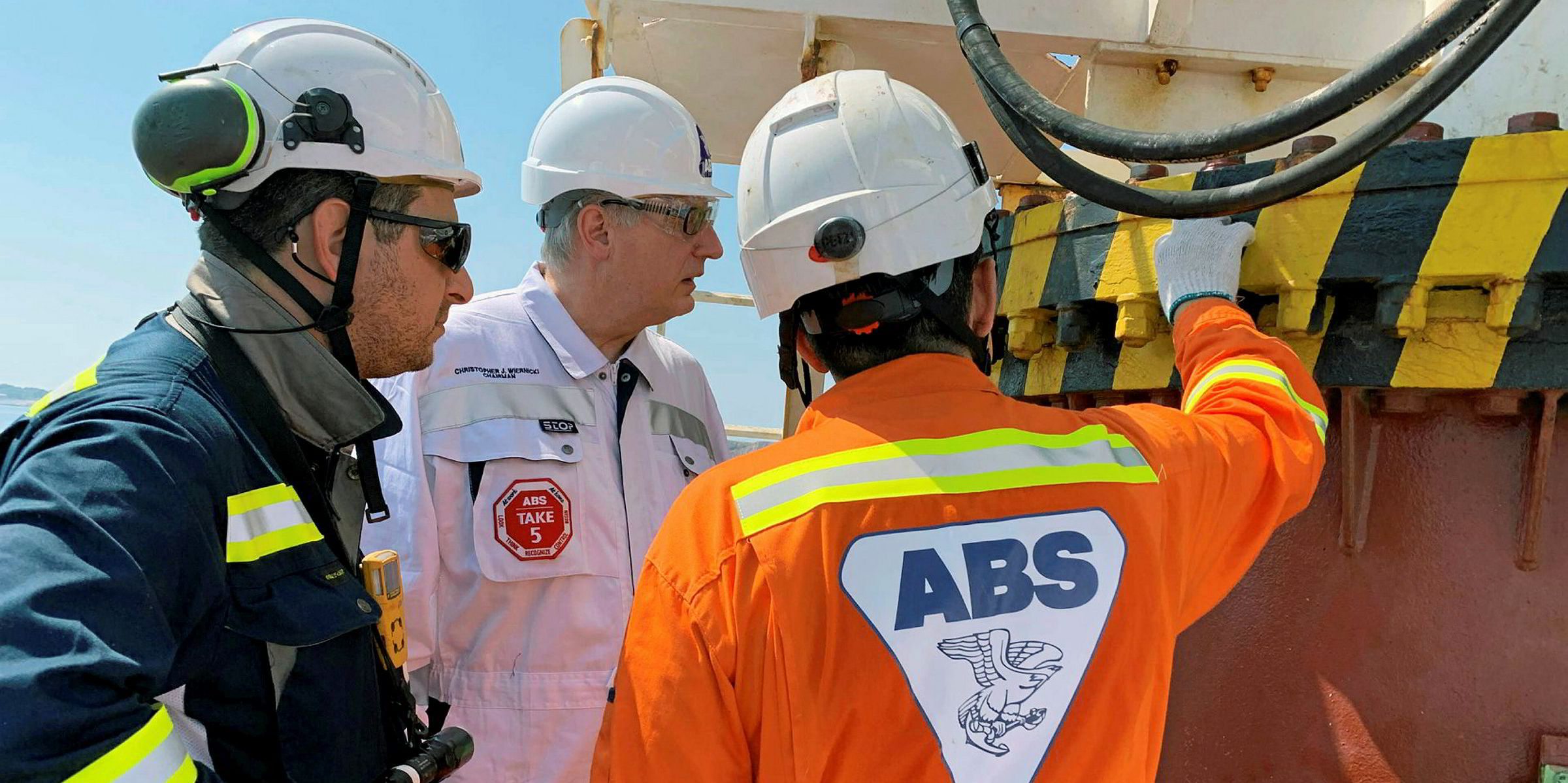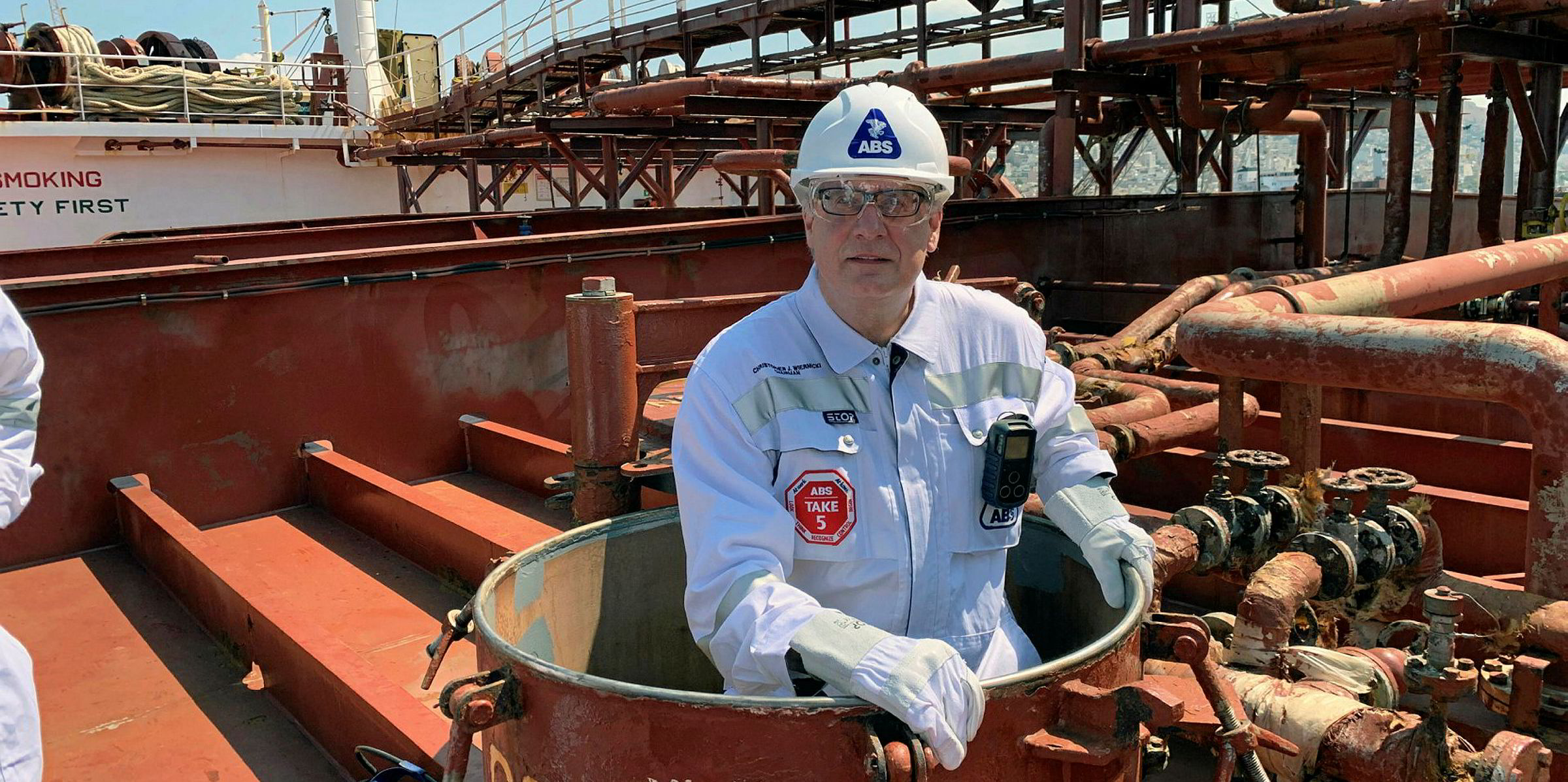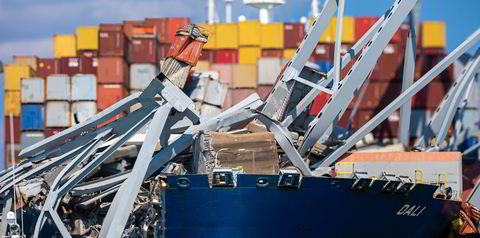ABS chief executive Christopher Wiernicki says classification societies need to keep pace with the way decarbonisation and digitalisation are changing shipping’s safety needs.
Amid the debate at London International Shipping Week on how to meet the target of halving greenhouse gas emissions by 2050, Wiernicki warned that the industry is in danger of losing sight of safety.
“What I hope does not get lost in this journey to 2050 is that focus on safety. That should always be the mantra of shipping,” he said.
He pointed out that class societies in particular need to review their role because decarbonisation, new technologies and digitalisation are bringing fresh challenges to safety.
Ticking boxes
Wiernicki explained that there are the “unintended” safety consequences of decarbonisation, such as the way it could encourage the design of underpowered ships. Vessels with conventional engines emit less CO2 if they have a lower power rating. However, the risk is that they might not have enough power to navigate safely.
Digitalisation can also bring different concerns to the ones that class societies traditionally handle.
“At the moment, class societies look at safety relative to things we touch, such as the ship, structure and equipment. But safety tomorrow will be linked to the things we can’t see, like the software and data analytics to support improved operations,” he said.
“There will also be totally different ways to operate ships with alternative fuels. So safety will be more synonymous with things like cyber security. Safety will be synonymous with reliability.”
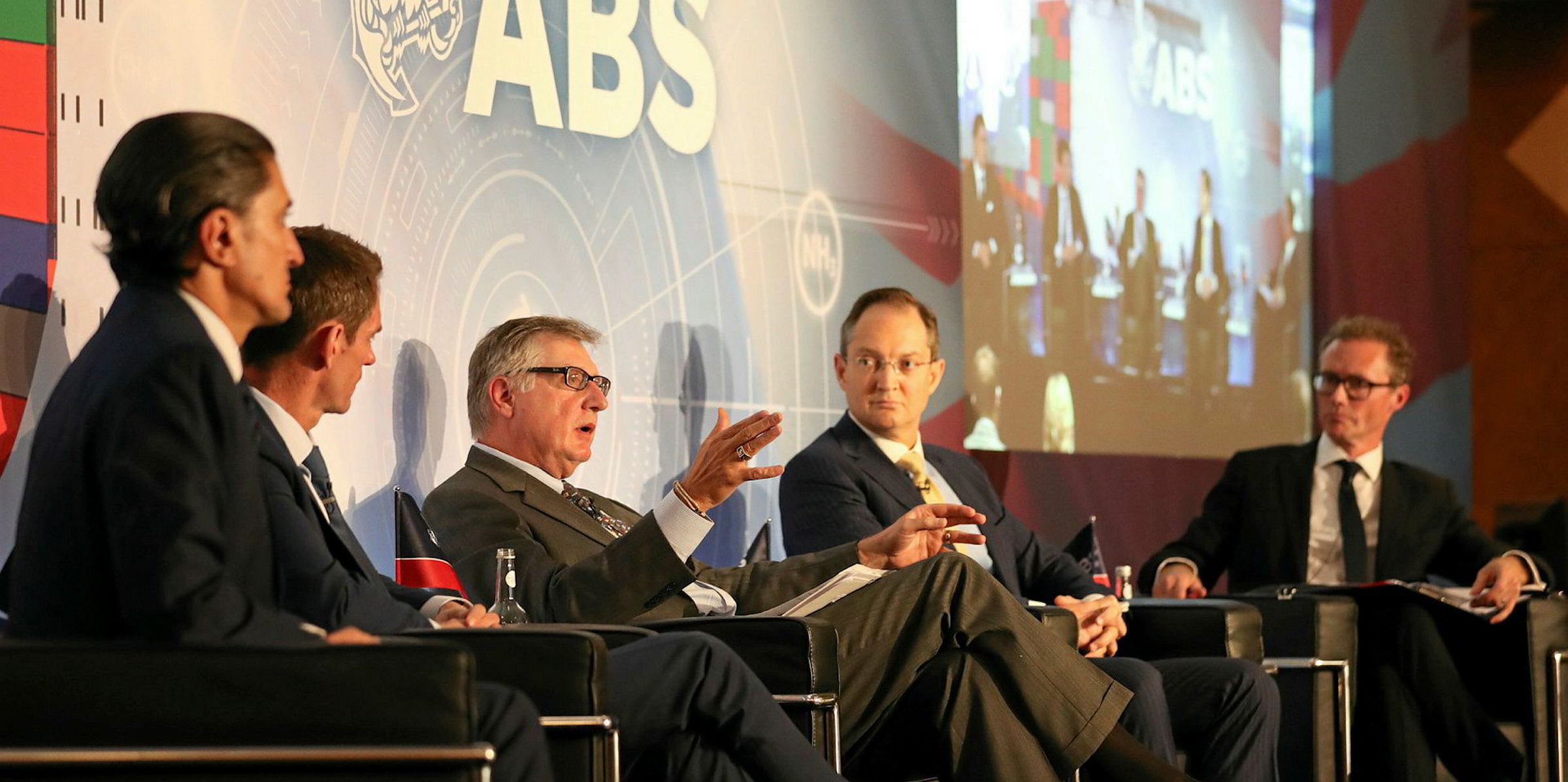
Wiernicki suggested that the International Safety Management (ISM) Code, which was mandated in the 1990s as a tool to encourage shipmanagers to develop onboard safety management systems, is up to meeting the new demands.
The ISM Code has been criticised in the past because owners can comply by ticking boxes rather than putting thought into developing safety systems. But the code was intended to be adaptable to the changing safety needs of ships, and Wiernicki believes it could now come into its own.
“There is a wonderful instrument out there, the ISM Code, and it is not just a compliance instrument. I believe it will be the heart of safety framework and it will underpin, and be the backdrop to, everything that we see relative to digitalisation and cyber security and even looking at the journey to low-carbon shipping,” he said.
“The convergence of digitalisation and decarbonisation will bring out, more so than before, the importance of class and ISM as a safety framework.”
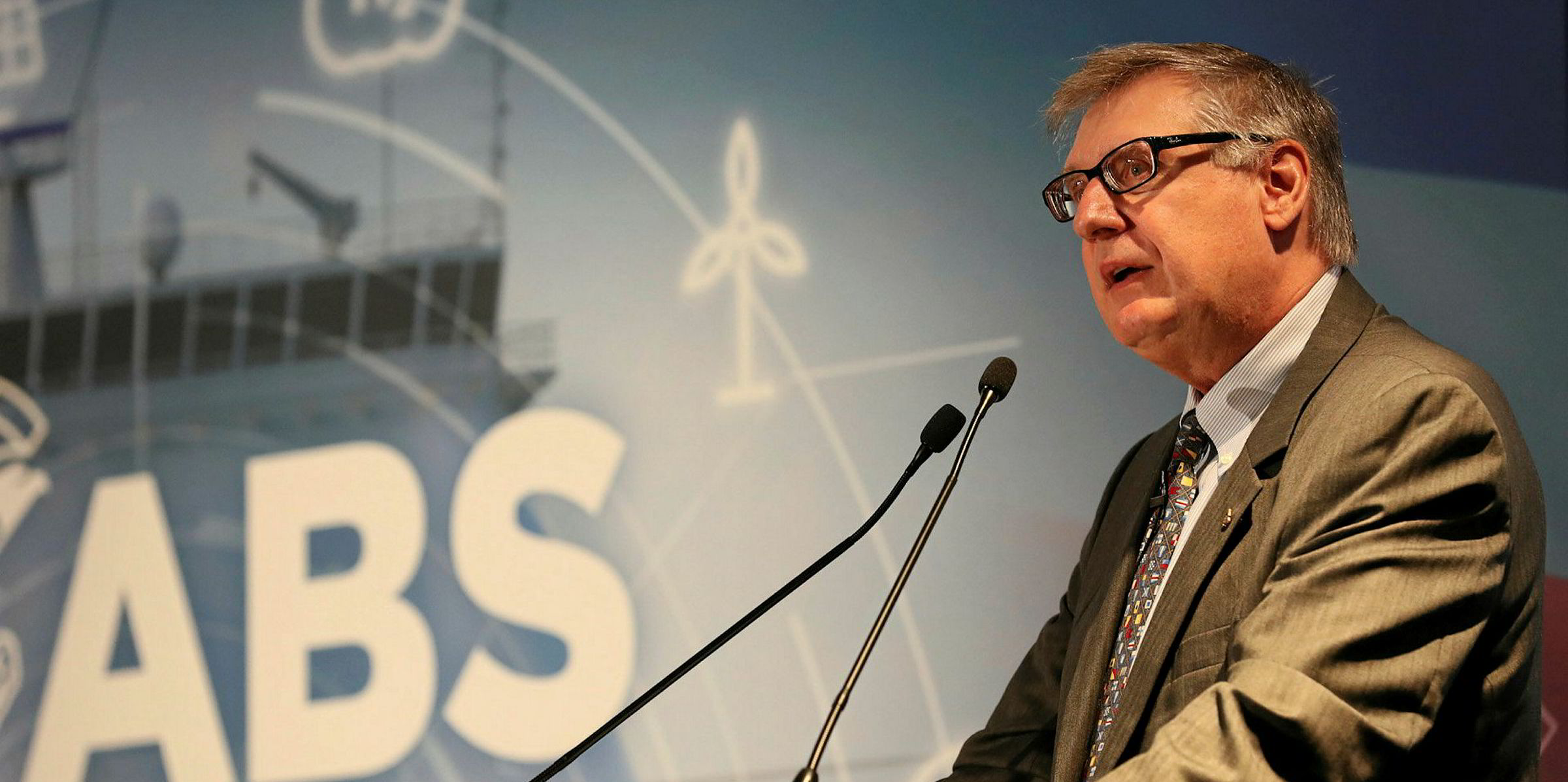
However, he said there are areas in which regulation needs to change to keep pace with technology that can enhance safety. ABS, in common with some other class societies, is using ship sensors to develop condition-based monitoring and surveying criteria. That allows maintenance and survey work to be carried out only when the condition of the vessel or its machinery requires it.
Financial benefits
There are financial and safety benefits, such as the potential to delay the first five-year dry-docking survey. But Wiernicki pointed out that class often finds itself constrained by the regulatory requirement of periodic surveys under the International Convention for the Safety of Life at Sea (Solas).
“For us, we are moving to condition-based class monitoring and away from calendar-based requirements like five-year schedules. Now we have pilot projects with some large companies on how to move our class-based decisions to condition-based requirements,” he said.
“But the big thing that has to change is Solas, which was put together at a time when there was no internet. The regulations themselves need to be brought up to work together with technology. I believe that is currently on the IMO’s list.”
Digital and electronic certification is another area ABS is moving into to develop technology that will improve cost efficiency and service.
